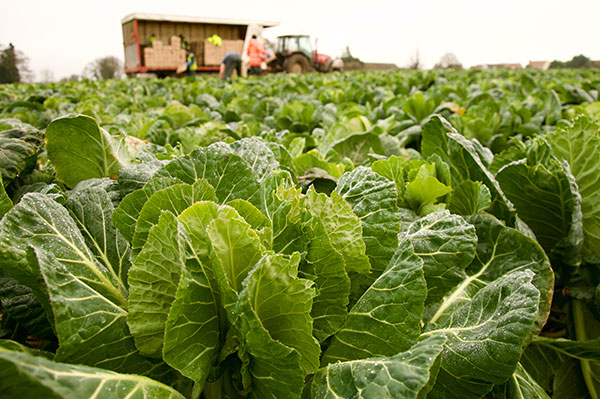In normal times, Waste Knot supplies surplus produce directly from farms to hospitality, catering and charities. However, since the Covid-19 crisis has forced the closure of all restaurants, pubs, bars etc, as well as creating an unprecedented demand on food redistribution charities, my efforts are now fully-focused on getting as much produce to those in isolation, the vulnerable and low-income families through various partners such as FareShare.
Due to the logistics already being in place, I’ve been able to carry on providing fruit and vegetables through the Surplus with Purpose fund, enabled by Defra. Not only does this allow for the surplus to be rehomed, but it provides the farmer with a cost-neutral source of income ensuring that cash keeps flowing through the business at this difficult time, allowing the majority of labourers and admin roles to keep their jobs.

The increased level of direct communication that I’m having with the food redistribution charities has prompted an enormously increased level of understanding about the operations, the logistics, the challenges, the rewards and the sheer determination and dedication of all those working to ensure that food redistribution can take place.
At the beginning of the crisis, a deluge of donations from suppliers unable to sell their produce to the hospitality industry went some way towards matching the unprecedented increased levels in demand for food. Now, however, with manufacturing levelling-off to meet much lower levels of commercial demands, teamed with a hunkering down of individuals and donors, the need has increased and the supply dramatically decreased.
Charities need the utmost support from government to be able to access food suppliers and producers to keep those in need fed, and food businesses (including those in frontline agriculture) staying afloat.
Interestingly, we’re receiving requests from individuals wanting to access our produce and also those who have a genuine interest in what we offer and the problems that we are tackling. It feels like, with time to think, people are scrutinising the ways in which we value food and those that grow and produce it, and moreover, want to make a difference.
A key message behind Waste Knot is to challenge perceptions, to question the norm and to manoeuvre ourselves to better, more efficient, sensical ways of working with each other and nature.
Never has there been a time where this is needed more. Once we’re through this, I hope we keep on an upward trajectory of focusing on what we, as a nation, can provide to nourish ourselves, mentally and physically.















0 Comments